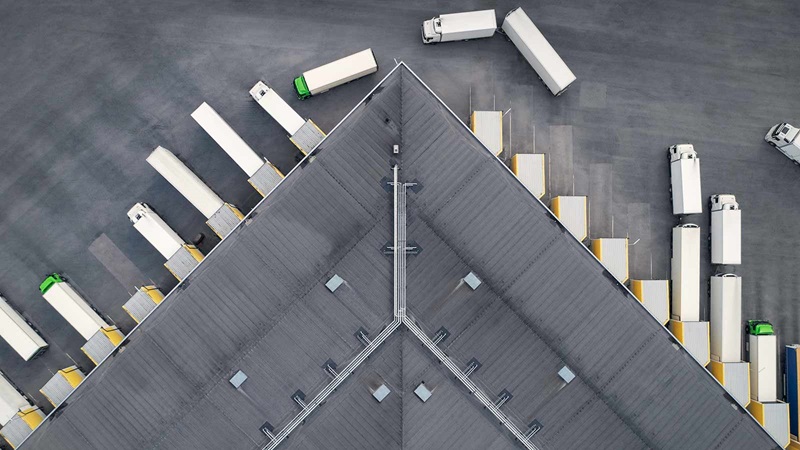Driving change: How collaboration will decarbonise transport
The clear and obvious impacts of climate change have propelled the need to decarbonise to the top of priority lists for governments around the globe. In Mace’s sphere of influence, there isn’t a sector that isn’t touched by this requirement. With this cross-cutting relevance, the question that we need to answer is how can we bridge the gap between sectors and facilitate collaborative efforts that go beyond siloed structures? Sean Gray, Mace’s Director of Transportation, shares his thoughts.
The drive towards net zero is a global priority, no question. Mace’s Carbon Survey, released in November, corroborates this, showing a positive trend in heightened action toward carbon reduction, with 82% of respondents adopting carbon reduction strategies compared to the 61% reported in 2022. However, despite this encouraging shift, the transport sector stands as a notable outlier; the same survey found that while 90% of architecture and engineering firms, and 89% of IT companies, now have carbon plans in place, only 73% of transport businesses are currently implementing a carbon reduction strategy.
Policy speedbumps
Despite overall emission reductions in various sectors, transport has notably defied this trend. This is particularly concerning given that the transport sector is a significant contributor to global carbon emissions, accounting for over a fifth of total emissions worldwide and approximately a quarter of emissions in the UK alone. Recent government initiatives, including the allocation of £30 million for innovative projects aimed at decarbonising highways through Live Labs 2, demonstrate a growing commitment to transformative solutions. But on the other hand, the UK Government is currently on course to miss its targets for EV charging by a decade. Prime Minister Rishi Sunak’s recent postponement of the UK ban on petrol and diesel cars until 2035 only compounds the challenge by removing the sense of urgency to get this charging infrastructure in place. This decision fosters a dangerous complacency that undermines the critical need for immediate infrastructure development.
To overcome many of the obstacles preventing transport decarbonisation, it’s going to take a collaborative approach, like the delivery partner model, to bridge sector gaps and integrate sustainability measures across the supply chain.
Heavy goods, heavy toll
Heavy Goods Vehicles (HGVs) alone represent a significant proportion of the UK’s road greenhouse gas emissions. In fact, the Green Finance Institute recently found UK HGV emissions to be roughly equivalent to the carbon footprint of domestic and international air travel, buses and domestic shipping combined.
These figures show that addressing HGV emissions is crucial to meeting net zero targets. However, existing policies often place the onus on manufacturers without setting specific targets for essential infrastructure development, such as charging stations suitable for trucks.
Despite the fact that advancements in electric HGVs mean they are now capable of rivalling their diesel counterparts in range, smaller companies have been slow to embrace them. This isn’t surprising when you consider that Zero Emission Trucks (ZETs) cost three times more on average than diesel HGVs. SMEs account for half of the sector’s turnover and truck ownership, so supporting these companies in decarbonising is crucial to building sustainable supply chains.Through genuine partnership and uniting diverse stakeholders, sustainability measures and best practices can be integrated across the entire supply chain.
The monumental task of establishing suitable charging stations for trucks demands not just rhetoric but bold and cohesive policies. Yet, political hesitance only adds fuel to the fire. The recent cancellation of HS2, which could have freed up existing rail lines for freight, further exacerbates the strain on road haulage. The transport sector is in dire need of streamlined, decisive policies that encourage sustainable alternatives while addressing the ever-evolving political landscape.
It requires a team effort
Empowering leaders to embrace comprehensive approaches is critical. Some organisations form dedicated teams to achieve their net zero objectives, but this can inadvertently sideline the agenda. It's crucial to transition from more isolated efforts to holistic, collaborative initiatives involving stakeholders across various sectors.
Policymakers must create a supportive environment, incentivising investments and ensuring a smooth transition toward zero-emission technologies. Those in the transport sector know the important role that government can play in decarbonisation, with 46% of leaders reporting in the Mace Carbon Survey that they don’t feel the same personal responsibility for doing so. A stable and open policy environment will be key to supporting investment at the pace and scale required.
While individual elements like EVs represent a vital part of the solution for decarbonising transport, they are not the sole answer. Embracing a diverse range of strategies, including investing in hydrogen fuel cell technologies and encouraging modal shifts, is crucial. Sharing best practices and leveraging expertise within the supply chain are essential for developing effective carbon reduction strategies.
Working closely with the supply chain, carbon-reduction strategies can be developed much more efficiently for everyone. By using the delivery partner approach to harness the collective knowledge and experience and establish robust communication frameworks, the development and implementation of carbon reduction strategies become more streamlined, effective, and beneficial for all parties involved.
Together, by embracing a multipronged approach and advocating for systemic change, we can pave the way towards a greener future for transportation.
For more information, click here.









